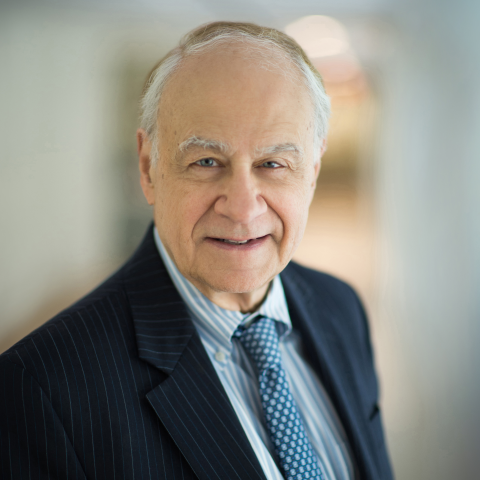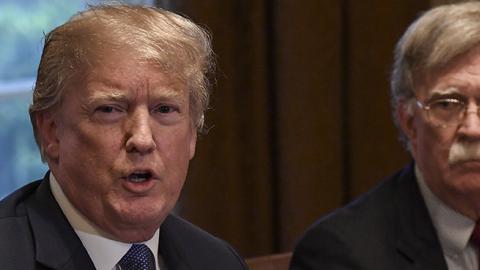p(firstLetter). Twenty years ago—the night of July 17-18, 1998 at the United Nations conference in Rome establishing the International Criminal Court (ICC), to be exact—an American amendment to restrict the role of this new supranational global court had just been overwhelmingly defeated. An observer remarked, “the delegates burst into a spontaneous standing ovation which turned into a rhythmic applause that lasted close to 10 minutes.”
From the delegations of the European Union and from human rights organizations including Human Rights Watch, Amnesty International, and a group now called Human Rights First (all of whom were staffed with many American citizens) came wild cheers and applause throughout the night, as the Rome conference rejected a series of amendments proposed by the United States to place checks on the court.
Nineteen years later in November 2017, ICC Prosecutor Fatou Bensouda officially requested permission from the court’s pre-trial chamber to proceed, for the first time, to investigate U.S. soldiers and officials for alleged “war crimes” and “crimes against humanity” in Afghanistan. Human Rights Watch praised the ICC move as a “potential, if long-time overdue, path to justice.” Amnesty International lauded the global prosecutor’s request as “a seminal moment for international justice.”
On September 10, at a Federalist Society luncheon, National Security Advisor John Bolton, speaking for President Trump, responded: “This administration will fight back to protect American constitutionalism, our sovereignty, and our citizens.”
Bolton’s speech was both hard-hitting and highly principled. Rich in historical and constitutional detail, the speech examines the actions of the International Criminal Court in the context of the core principles of American constitutional democracy and the principle that the only legitimate government is government by the consent of the governed. The speech was a tour de force that should be used in classrooms as a clear example of our constitutional morality and democratic sovereignty in action.
Shocked, Appalled, and Principle-Free
Critics immediately launched attacks on Bolton’s speech, but they never responded to his principled arguments in defense of democratic self-government. A hysterical headline on the front page of the New York Times declared “On War Crimes Court, U.S. Sides with Despots, Not Allies.” Human Rights First issued a short statement that Bolton’s announcement was “reactionary fear-mongering.”
Former George W. Bush Administration official John Bellinger worried that the current White House’s actions would “hurt the court and the cause of international justice.” Indiana international law professor David Bosco called Bolton’s speech “maximally offensive to the court, often inaccurate, but also hollow at its core.”
Harvard law professor Alex Whiting of the American Bar Association’s “International Criminal Court Project” criticized what he called “Bolton’s chest-thumping remarks” and the Trump Administration’s “embrace” of “propaganda tactics.” Whiting, too, worried about the harm to the potential effectiveness of the ICC.
None of these critics bothered to engage in a principled debate with Bolton’s constitutional reasoning. Are they capable of making a principled counter-argument?
A Frontal Assault on Democratic Sovereignty
The operating principles of the International Criminal Court are in direct contradiction to the values of democratic self-government. Under ICC rules, the soldiers and officials of a democracy (such as the United States, Israel, and India) that did not ratify the ICC treaty could nevertheless be tried by ICC judges (some from undemocratic authoritarian states, who are state parties to the treaty—e.g.,the Democratic Republic of the Congo, Chad, Tajikistan) against the consent of that democratic state, if the alleged war crimes occurred on the territory of a member of the ICC. In the current situation, the alleged American “war crimes” occurred in Afghanistan, a treaty signatory, so the ICC prosecutor is attempting to assert jurisdiction.
Supporters of the ICC argue that under the principle of “complementarity” the accused nonmember nation-state has the option of trying its own soldiers and officials first. Supposedly, the ICC acts only if the nation-state is “unable or unwilling” to conduct a fair trial of its own citizens. Crucially, however, the final decision on a whether the nation-state is acting properly is, according to ICC rules, to be decided by the ICC, not the nation-state itself.
Further, the definition of what exactly constitutes a “war crime” differs. For example, the ICC relying on Additional Protocol I of the Geneva conventions of 1977 (which the United States did not ratify and, therefore, does not recognize as international law) considers an air force bombing of military targets, without prior warning to civilians in the area, a “war crime.” The United States Defense Department rightly disagrees. In prosecuting cases the ICC obviously privileges its own definitions of war crimes and international law, not those of the accused nation-state.
In short, the entire ICC process is entirely outside of American constitutional democracy and is antithetical to the universal democratic concept of “government by consent of the governed.” Hence, the ICC is, as Bolton said, a “fundamentally illegitimate” institution in principle and in practice.
Reasserting Sovereignty in a Globalized World
When President Trump referred to “sovereignty” 21 times in his 2017 speech at the United Nations many commentators pretended confusion. What was he talking about? What does a concept such as “sovereignty” even mean in our globalized world? But clearly, the Trump Administration’s policy, announced by Bolton, repudiating the attempted power grab by the ICC’s global prosecutor is a perfect example of democratic sovereignty in action.
This issue is part of the great struggle of our time between sovereign self-government and supranational globalism (or transnational progressivism). Israeli philosopher Yoram Hazony, in a brilliant new book The Virtue of Nationalism, describes this conflict as one between nationalism and imperialism. It began, Hazony tells us, in the Hebrew Bible when the nationalism of the ancient Israelites was confronted by the imperialism of the Babylonian, Persian, Egyptian, and Roman empires. And it continues today as transnationalists promote a more centralized neo-imperialist EU against resistance from some nation-states more interested in maintaining their sovereignty.
The parameters of this global struggle are exemplified by two diametrically opposed reactions to President Trump’s U.N. speech. The transnational progressive Swedish Foreign Minister Margot Wallstrom was appalled. “This was a bombastic nationalist speech. It must have been decades since one last heard a speech like that in the U.N. General Assembly,” she fumed. “It was the wrong speech, at the wrong time, to the wrong audience.”
On the other hand, the democratic nationalist prime minister of Israel, Benjamin Netanyahu, was delighted: “In over 30 years in my experience with the U.N., I have never heard a bolder or more courageous speech.”
The “Americanists” Fight Back
Eighteen years ago in a 19-page academic essay in Chicago’s Journal of International Law, John Bolton asked “Should We Take Global Governance Seriously?” He concluded, “sadly the answer is yes.”
Moreover, writing September 1, 2000, Bolton argued we should take the “debate over global governance” seriously “not only today but far into the foreseeable future.” Prophetically, Bolton described a conflict between “Globalists” and “Americanists” that will be “fought out at the confluence of constitutional theory and foreign policy.”
That conflict continues today, but with a vital difference. Whereas previous administrations would equivocate on this point, the Trump Administration with Bolton as its point man, is unequivocally putting the interests of the “Americanists”—of our Constitution, our sovereignty, and our citizens—first.


















